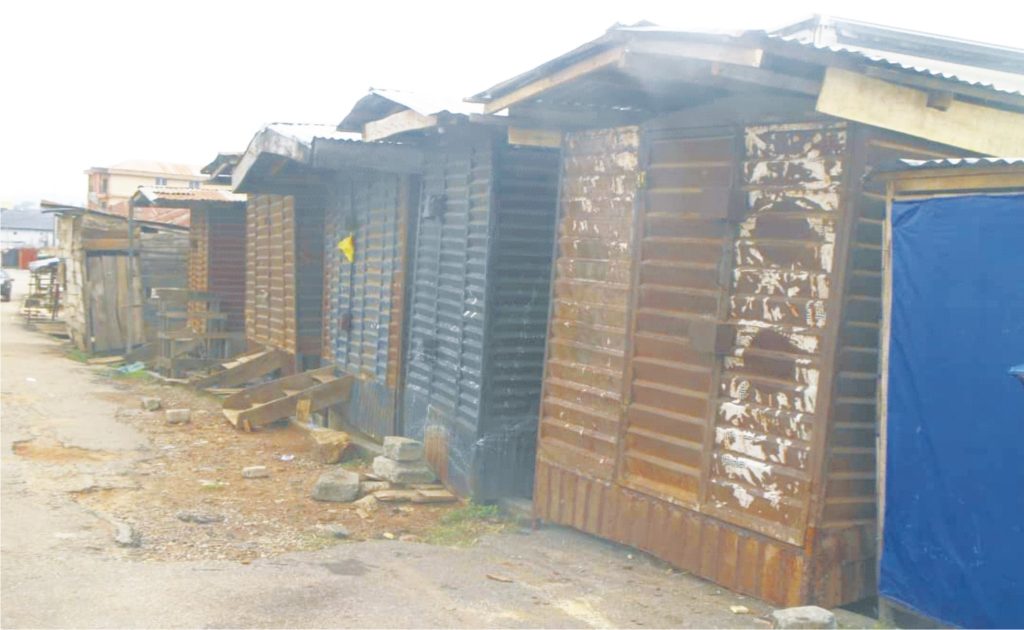Refocusing TETFund
THE setting up of the Tertiary Education Trust Fund (TETFund) as an intervention organisation in tertiary education in Nigeria remains one of the huge leaps to reverse the regressing fortunes of higher education in the country. Most public Nigeria tertiary institutions bear remarkable imprints of TETFund in the areas of physical developmental projects, like construction of administrative offices, as well as provisions of classrooms, hostels, laboratories, libraries, etc., with the staff training components also allowing for the enhancement of the values and capacities of both academic and non-academic personnel, both locally and internationally. Of particular note is the overseas training of these staff that has cost the organisation, through releases to institutions, billions of naira.
THE law setting up TETFund prescribes the imposition of tertiary education tax at the rate of two percent on the accessible profit of companies registered in Nigeria, with the money meant for the rehabilitation, restoration and consolidation of tertiary education in Nigeria, managed by the Board of Trustee. Believed to be a brain-child of the Academic Staff Union of Universities (ASUU), The Hope is aware that the operations of this organisation have been fraught with controversies, as funds released by it have been largely misapplied by some university administrators.
THIS inappropriate fund usage was reported to be by way of poor execution of contracts, political patronage and tokenism in the approvals of training funds, and non-implementation of awarded contracts, etc. As vestiges of this financial recklessness copiously dot institutional spaces, there was the pitiable instance of the award of laboratory equipment to the tune of N600 million naira, few years ago, in a university in southwest Nigeria that saw the contractors delivering obsolete equipment, leading to the project being moribund.
THE redundancy of the present operations of TETFund was recently magnified by the revelation made by the Executive Secretary of TETFund, Sonny Echono, at an engagement with the House of Representatives Ad-hoc Committee investigating the alleged mismanagement of N2.3tn tertiary education tax, that more than 137 academic staff sponsored overseas to acquire additional degrees unpatriotically absconded.
NEEDLESS to say that the attitude of the absconded individuals foregrounds the flagrant abuse of the laudable initiative of government in this regard, the condemnable behaviour is also symptomatic of the rot in the Nigeria Ivory Tower, particularly the value-debasement of critical stakeholders that are, ordinarily, gatekeepers and attitude shapers, given the fact that awards of tertiary education certificates is based on exemplary aggregation of character and learning.
WE are also aware that ASUU has variously criticised the federal government for dipping hands in the repository of TETFund to establish new tertiary institutions, as it similarly called out state governors for establishing new tertiary institutions with the idea of funding them through TETFund. So many campuses of state-owned tertiary institutions house buildings with TETFund intervention inscriptions, thereby reducing them to what is now sarcastically called ‘TETFund institutions’. The foregoing merely stresses the need for federal and state governments to make provisions for take-off grants for new institutions, rather than burdening the already overstretched intervention fund that is warehoused in TETFund.
THE Hope is delighted that Echono talked about the commitment of TETFund to introduce new stringent measures that would discourage sponsored academics from absconding, but it is also very imperative that a holistic evaluation of past foreign sponsorships is made in order to ensure that the essence of the initiative has not been defeated, most especially considering the humongous funds deployed, amidst shrinking funding of tertiary education in Nigeria.
WHILE it may be commendable that the leadership of National Association of Nigeria Students (NANS) is being enlisted by Echono to help monitor TETFund projects in tertiary institutions across the country, we are of the belief that such overture may be ineffectively redundant, considering the fact that a past similar watchdog, encased as Budget Monitoring Committee (BMC), involving representatives of staff unions in each institution, could not stop flagrant violation of contractual processes, due to the overarching dispositions of institutional managers and complicit personnel of TETFund. This is as the 30-seater bus TETFund presented to NANS recently is innately bogus, when viewed against the background of dearth of critical infrastructures in tertiary institutions in the country.
THE Hope calls on TETFund, institutional Councils and managers, students and staff unions to rise to protect this higher education life-line from all forms of abuse, as the higher educational sector would continue to suffer the consequences. Federal and state governments should also refrain from unnecessarily burdening the funding agency, as TETFund is encouraged to go back, and stick, to its original mandates.










